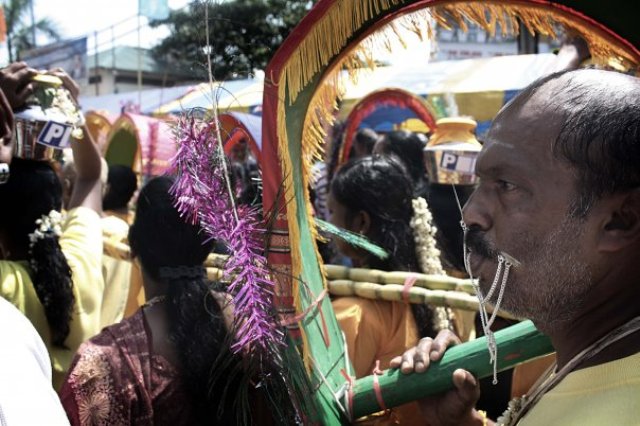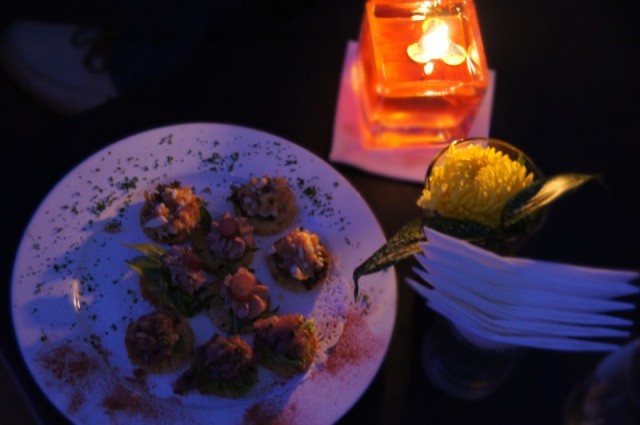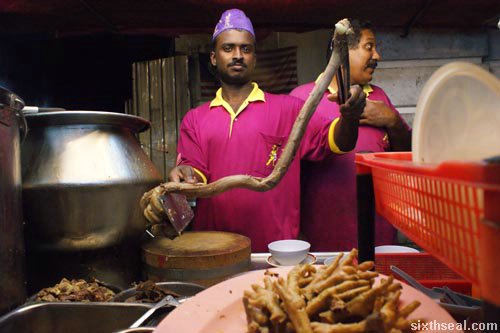The world is filled with strange and interesting phenomena. Spiritual apparitions, unusual delicacies, and bizarre customs are just some of the few examples where culture dictates the oddities and norms of a society. As a multicultural nation, Malaysia comes with all sorts of practices and traditions that foreigners may deem as baffling, puzzling, interesting, or downright entertaining. Not for the weak hearted, some of the activities and delicacies featured here might repulse, frighten, intrigue, or excite you.
The Hungry Ghost Festival
Photo Credit: benoxi, Flickr
The Hungry Ghost Festival, or Yu Lan, is a traditional Chinese festival celebrated by many Chinese communities the world over. This otherworldly tradition falls on the 15th day of the 7th moon (around August-September), according to the Chinese Lunar Calendar. On this day of importance, it is believed that the realms of Heaven and Hell open up, leaving ghosts and spirits to roam freely and visit the living. As such, it is important that Chinese families in Malaysia pay their respects to their ancestors through certain ritualistic activities.
These rituals include preparing food offerings, burning incense, joss paper, and other papier-mâché forms of materialistic goods at shrines, as well as having community performances that discourage the ghosts from bringing bad luck, causing harm, or entering their homes. The community performances typically take place a week before the actual festival begins in neighborhoods that have a significant Chinese community. This usually involves setting up a temporary stage to be used for Chinese Opera and Chinese Puppet shows to entertain the living and non-living alike. Witnessing these events can be both eerie and entertaining, as you never know who or what might be watching beside you.
Thaipusam

Photo Credit: RaveDev Photography
Thaipusam is a Hindu festival celebrated in Malaysia during the beginning of the year, coinciding with the full moon at the end of January and the beginning of February. This festival commemorates the triumph of Lord Murugan’s victory over Soorapadman’s tyranny. Before the festival, preparations and rituals usually take place before the big day itself. Some devotees fast while others shave their heads as an act of gratitude, repentance or as a plea to have their prayers answered.
Other devotees, called Kavadi carriers, are those who have requested favours, had their favours answered, or wish to atone for past sins. Milk, which is a symbol of purity and virtue in Hinduism, is commonly carried as offerings, while those who are heavily devoted individuals wishing to display a higher amount of faith may carry more illustrious ornamental offerings and occasionally pierce their cheeks, tongues, or backs with sharp objects to symbolize the Vel (spear) as a sign of faith.
On the eve of Thaipusam in KL, Lord Murugan’s image is decorated with diamonds, rubies and other ornate jewels, and is hoisted onto a five-ton chariot to begin a 15km holy trek from Chinatown to Batu Caves. The procession weaves through many major streets and takes around eight hours to reach its destination, where the celebration will take place.
Dining In The Dark KL

Photo Credit: Dining in the Dark KL
Dining in the dark is a culinary concept based on the notion that robbing you of your visual sense will heighten the rest of your remaining senses. A fairly new restaurant based on this concept has popped up in one of KL’s busiest streets, Changkat Bukit Bintang, and while it is by no means an original concept, it still remains bizarrely intriguing. Hailed by critics as a must try dining experience, this downtown eatery places guests in a dining room blanketed with darkness, where you will be served by visually impaired waiters.
Anything that could break the experience (such as mobile phones, laptops, etc.) will be kept in a private locker outside of the dining hall. The menu consists of three different courses, a starter, a main course, and a dessert which will be fixed and will change every few weeks or so. While the food has been noted to be fairly delicious, what really makes it a unique dining experience is the entire package.
City Ghost Tours
Photo Credit: udeyismail, Flickr
South East Asia is notorious for spiritual encounters and Kuala Lumpur is no exception. Due to the superstitious nature of the three most populous races in the nation, certain areas in Kuala Lumpur are a hotbed for phantoms, spirits and other ethereal entities. As such, some individuals have crafted tours specifically targeting those who are interested in discovering KL’s spiritual underbelly and all the spooks that come with it. One such example is the Haunted House Spookster Tour, aimed at educating and showing people several areas in KL that have strong spiritual connections.
Not for the light hearted, the tour begins tamely enough with a seafood dinner, before moving on to an Indian temple to learn more about spiritual beliefs and holy blessings. The first real taste of eeriness begins when the tour guide brings participants to a Chinese cemetery for the chance to feel a connection with the roaming phantoms. The next few stops include an infamous yet now defunct jail (which is partially demolished by now), a female vampire (pontianak) den, an old railway station notorious for suicides, and finally back to the seafood restaurant, where a final cleansing will be performed to ensure that you aren’t followed by any unwanted guests.
Drinking Torpedo Soup

Photo Credit: sixthseal.com
Torpedo soup (Sup Torpedo in Malay) is a coy euphemism for bull’s penis soup. While the broth and other accompanying herbal condiments differ from stall to stall, the primary ingredient – bull’s penis, does not. Famous for supposedly giving men virility as well as being tasty, the soup can be easily found throughout the city in dedicated stalls and mamaks. It is commonly consumed with bread on the side and the texture of the primary ingredient is chewy. Although definitely not for the unadventurous eater, those who are willing to experience unusual delicacies should consider giving this soup a try, as it has been said to be a stronger and more natural alternative to Viagra, Ginseng, or even Red Bull.
Drinking Bird’s Nest Soup
Photo Credit: cl_03, Flickr
Bird nest’s soup has its roots entrenched in hundreds of years of Chinese history and are some of the most expensive foods on the planet. Still a prized delicacy in China and other parts of the globe that have Chinese communities, the best nests back in the day were often reserved as gifts for emperors and empresses. This is partly due to the fact that the Chinese believe that drinking boiled dried bird’s nest, which is made with their saliva, the traditional way, made with rock sugar, has bountiful positive effects on human health.
This ranges from the promotion of a youthful and radiant complexion, raising libido, alleviating asthma, improving focus, to the increase in blood circulation for children, patients in the recovery stage, and the elderly. While this is not the full extent of benefits from consuming bird’s nest, the other reason it is highly prized can be traced to the laborious amount of effort it takes to collect these nests. This is mainly because the nests are often the product of swallows that usually set up home high atop seaside cliffs or limestone caves, thus making it dangerous and extremely tough for harvesters to collect them. While expensive, there are plenty of individuals who get repulsed at the idea of consuming a delicacy consisting of sweet bird’s spit soup.
"ExpatGo welcomes and encourages comments, input, and divergent opinions. However, we kindly request that you use suitable language in your comments, and refrain from any sort of personal attack, hate speech, or disparaging rhetoric. Comments not in line with this are subject to removal from the site. "




















